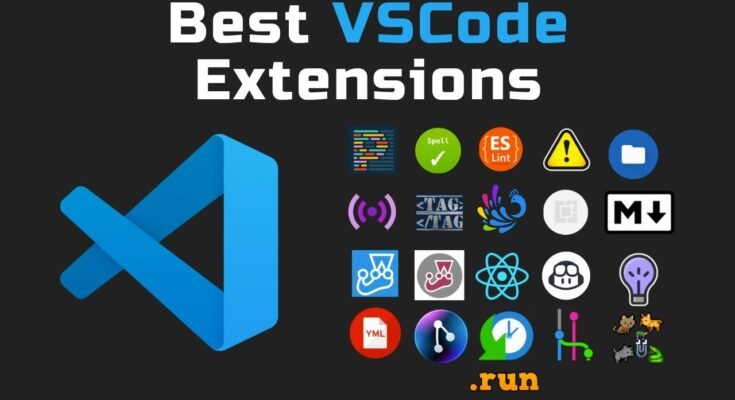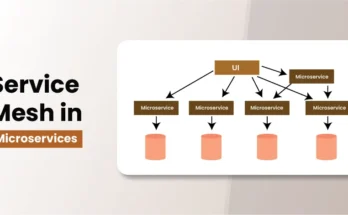Visual Studio Code (VS Code) has rapidly become a preferred tool for many data scientists across the globe. Its popularity can be actively attributed to its lightweight yet powerful features, customisability, and wide range of extensions that cater to the needs of data scientists. Whether you’re working with Python, R, or any other data science language, VS Code provides an excellent environment to write code, run experiments, and analyse data. For those interested in data science, learning to use VS Code efficiently is essential, and taking a data science course can significantly enhance your understanding of this tool and its capabilities.
In this article, we’ll delve into how VS Code is transforming data science workflows, highlighting tips, essential extensions, and best practices. Additionally, we will explore how these tools and techniques can optimise productivity for data scientists, particularly those pursuing a course in Hyderabad.
The Rise of VS Code in Data Science
VS Code has swiftly become a popular choice for many professionals, including data scientists. What started as a simple code editor has evolved into a complete Integrated Development Environment (IDE), thanks to its several extensions and the active support of Microsoft. The open-source nature of VS Code, along with its customisability and simplicity, makes it ideal for both beginner and experienced data scientists.
For many, it has replaced traditional IDEs like PyCharm or Jupyter Notebooks due to its speed, simplicity, and ability to seamlessly integrate with other tools. The lightweight nature of VS Code ensures that it doesn’t consume too many system resources, which is important when working with large datasets or running resource-intensive models. This makes it a perfect fit for the fast-paced world of data science, where efficiency is key.
Key Features of VS Code for Data Science
VS Code is equipped with features that can improve your data science workflow. These features are often extended through extensions, and the combination of both makes VS Code an all-in-one solution for data scientists. Let’s explore some of the core features:
1. Integrated Terminal
One of the significant features of VS Code is its integrated terminal. This feature lets you run shell commands directly from the editor, eliminating the need to actively switch between different applications. For data scientists, this is incredibly useful when running scripts, managing environments, or working with Git repositories. The terminal is also flexible, allowing you to customise it to suit your needs, including running Python scripts, Docker containers, or shell commands.
2. Version Control with Git
Data science projects often involve collaboration, and Git is the most widely used version control system. VS Code comes with built-in Git support, making it seamless to track changes, manage branches, and commit code directly from the editor. This integration simplifies collaboration between teams, allowing data scientists to focus on analysis and model development rather than managing code manually.
Essential Extensions for Data Science in VS Code
One of the reasons VS Code is so popular among data scientists is the sheer number of extensions available. These extensions enhance the editor’s functionality and make it specifically tailored to the needs of data science workflows. Below are some of the must-have extensions for any data scientist using VS Code.
1. Python Extension
The Python extension is a must-have for any data scientist working with Python. It provides features like code linting, IntelliSense, debugging, and even the ability to run Jupyter Notebooks within the editor. This extension also supports virtual environments, which is essential for managing dependencies across different projects.
2. Jupyter Extension
If you’re heavily involved in data science, particularly for exploratory data analysis (EDA) or machine learning (ML), the Jupyter extension will be your best friend. It enables the creation, editing, and running of Jupyter Notebooks directly within VS Code. You can run Python cells, display outputs, and even visualise data in real-time—all from within VS Code.
3. Visual Studio IntelliCode
IntelliCode is an AI-powered code completion extension that helps you write code faster. It suggests completions based on your past code and the common coding patterns of developers in your workspace. This extension is particularly useful for data scientists who work with large datasets and complex libraries.
4. GitLens
For those who collaborate with others on code and need version control, GitLens is a great extension to enhance the built-in Git functionality of VS Code. It provides detailed information about each commit, author, and file change, making it easier to navigate and understand your project’s version history.
5. Docker Extension
Working with containers is becoming increasingly popular in data science, especially for scaling machine learning models or deploying services. The Docker extension for VS Code enables you to manage Docker containers and images from within the editor. It integrates well with other tools like Kubernetes, allowing data scientists to deploy and manage models in production environments.
Best Practices for Data Science Workflows in VS Code
In addition to using the right extensions, adopting best practices for working in VS Code will ensure that you make the most out of this powerful tool. Here are some recommended practices:
1. Organise Your Workspace
Keeping your project files and directories organised is crucial when working on complex data science projects. VS Code allows you to open multiple folders in one workspace, making it easier to navigate through different parts of your project. Creating a clear folder structure and naming your files appropriately will save you time when you need to find specific code or datasets.
2. Use Virtual Environments
Data science projects often rely on specific versions of libraries and dependencies. Using virtual environments is essential to avoid conflicts between projects. VS Code has built-in support for Python virtual environments, allowing you to easily manage them within the editor.
3. Leverage Jupyter Notebooks for EDA
Exploratory Data Analysis (EDA) is a crucial step in any data science project. VS Code’s Jupyter integration makes it easy to load and visualise data within your notebooks. Use this feature to quickly iterate on your analyses, perform data cleaning, and visualise patterns in your data.
4. Version Control and Collaboration
When working with teams, Git is essential for version control. Commit frequently, use branching to manage different features, and push your code to a shared repository. VS Code’s Git integration allows you to perform all of these tasks directly from the editor, making collaboration smoother and more efficient.
Optimising Productivity with VS Code
Efficiency and productivity are key in data science. By customising your workflow, using the right extensions, and taking advantage of built-in features like IntelliSense, Jupyter integration, and version control, you can optimise your workflow in VS Code. This will allow you to focus more on solving business problems and developing models, rather than managing tools and environments.
For those who are enrolled in a course in Hyderabad, learning how to use VS Code effectively will give you a distinct advantage in your career. By mastering this tool, you’ll be able to quickly prototype machine learning models, analyse large datasets, and collaborate efficiently with colleagues—skills that are essential in today’s competitive data science landscape.
Conclusion
VS Code has firmly established itself as one of the top choices for data science professionals. Its versatility, customisability, and range of extensions make it an ideal tool for data scientists who work with a variety of programming languages and technologies. Whether you’re writing Python scripts, running Jupyter Notebooks, or collaborating on Git repositories, VS Code provides a streamlined and efficient environment for data science tasks.
For those pursuing a data scientist course in Hyderabad, learning how to use VS Code will not only help you manage your workflow effectively but also enable you to focus on delivering actionable insights from your data. As the data science landscape continues to evolve, mastering tools like VS Code will position you for success in this dynamic and fast-growing field.
ExcelR – Data Science, Data Analytics and Business Analyst Course Training in Hyderabad
Address: Cyber Towers, PHASE-2, 5th Floor, Quadrant-2, HITEC City, Hyderabad, Telangana 500081
Phone: 096321 56744




